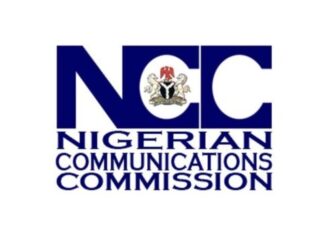By Jeph Ajobaju, Chief Copy Editor
Integrated cutting-edge tax system to reduce corruption and raise revenue for the treasury is on the mind of Vice President Yemi Osinbajo who wants Nigeria to be at pace with the global changes in the management of economic and financial systems.
Tax administration is built around data, and without credible and comprehensive data, he stressed at the launch of the new National TAX Identification Number Registration System in Abuja on July 1, an efficient tax system is impossible.
As international boundaries dissolve under the reality of a globalising world, and as financial and economic activities increasingly transcend geographical limitations, tax administration itself, must of necessity continually adapt.
Tax systems need important statistics such as the number of eligible individuals and businesses, volume of economic activity, and then design and implement strategies for optimal use of the data.
Osinbajo said this is why it is important to have proper identification of eligible taxpayers, individuals and corporate bodies.
Identification and registration of tax payers
A Tax Identification Number (TIN) identifies and registers new tax payers and brings them into the tax bracket.
A tax bracket gives the managers of the national tax administration systems the capacity to conveniently and efficiently access and connect information from multiple sources.
It forms the basis for projecting future revenues and for making realistic expenditure plans for governments.
TIN registration system will utilise existing data from a variety of authorised identity management agencies and help build a database that is reliable and verifiable.
According to Osinbajo, what Nigeria has at the moment is data from Corporate Affairs Commission (CAMA), Identity Management Systems, and TelCos.
All of that data is relevant for tax purposes and what it does is bring all the data together in one particular system which is through a tax identification number.
The ultimate outcome is increased revenues for governments and the ease of doing business for business owners, who must be registered and have an identification number.
More tax receipts will help fund investments in infrastructure, social investment, human capital development and more, he added.
TIN aligns with economic growth plan, reduces graft
The new initiative aligns with Abuja’s objectives in the Economic Recovery and Growth Plan (ERGP) and all the other documents meant to power economic development.
Osinbajo said the new TIN system supports Nigeria’s Ease of Doing Business ambitions, and increased tax system automation also frees up room for businesses – small and large – to thrive, bypassing the strictures of bureaucratic red tape.
Besides, TIN reduces the possibility of indiscretion and corruption with people asking for money, and facilitates an easier operating environment with positive implications for corporate bottom-lines as well as tax revenues.
“What we seek to achieve is attract business, not just international business, but even more importantly, local business.
“It is local investment that delivers the local economy the most, and if it’s easy for the local person to do business, it becomes even more attractive for international businesses to come into the country,” Osinbajo said.
Need for inter-agency cooperation
President Muhammadu Buhari has directed relevant government agencies to cooperate fully with the Joint Tax Board (JTB), especially in the release of individual records, to ensure the success of the initiative.
The agencies include the Central Bank of Nigeria (CBN), the Nigeria Interbank Settlement System (NIBBS), and the National Identity Management Commission (NIMC).
Osinbajo commended the JTB, led by its Chairman, Tunde Fowler, and all the partners
and stakeholders who made “this giant leap” possible, stressing that the business
and economic environment is better with continuous innovation.














